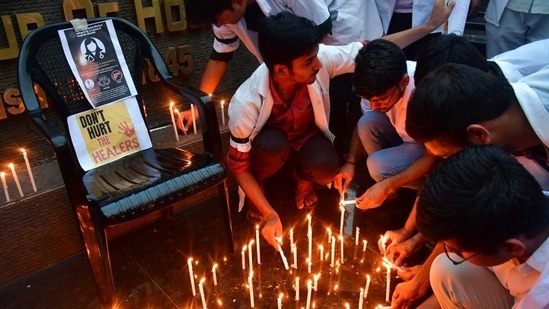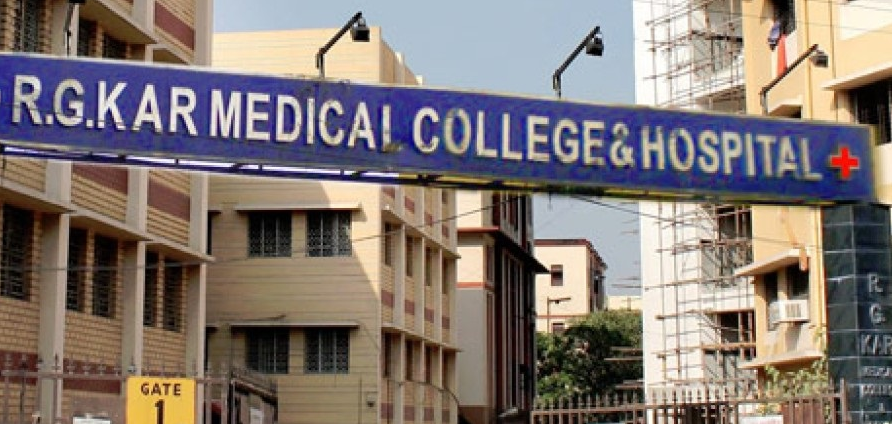In recent weeks, the city of Kolkata has been gripped by a tragic and disturbing incident that has sparked outrage and calls for justice across the country. The case involves the alleged rape and murder of a young female doctor at the R.G. Kar Medical College in Kolkata. This horrifying event has not only shaken the local community but has also drawn significant national attention, leading to widespread protests and legal proceedings. This blog will delve into the details of the case, the investigation, and the broader implications for society.

The Incident: A Shocking Discovery
The incident came to light when the body of the young doctor was discovered in her hostel room at R.G. Kar Medical College on a fateful day in August 2024. Initial reports suggested that the victim had died by suicide, but further investigations revealed signs of foul play. The post-mortem examination indicated that the victim had been sexually assaulted before being murdered, leading to a dramatic shift in the focus of the investigation.
The case quickly gained national attention due to the victim’s profession and the brutal nature of the crime. The young doctor, who was in her mid-twenties, was known for her dedication to her work and was beloved by her peers and colleagues. Her tragic death has left a void in the medical community and raised serious concerns about the safety of women, even in supposedly secure environments like medical colleges.
The Investigation: Unraveling the Truth
As the investigation into the case began, the West Bengal Police faced immense pressure to bring the perpetrators to justice. The initial handling of the case was met with criticism, as many felt that the authorities were not doing enough to investigate the matter thoroughly. The victim’s family, friends, and various women’s rights organizations demanded a more in-depth probe into the circumstances surrounding her death.
Amidst growing public outcry, the Calcutta High Court intervened, expressing dissatisfaction with the progress of the investigation. The court questioned the state police’s handling of the case and ordered the transfer of the probe to the Central Bureau of Investigation (CBI). The court’s decision was seen as a significant development, as it signaled the seriousness with which the judiciary was taking the case and the need for an unbiased investigation.
The CBI’s involvement has brought new hope for justice, as the central agency is known for its expertise in handling complex cases. The agency has begun its probe by collecting evidence, recording statements from witnesses, and conducting forensic analysis. The transfer of the case to the CBI has also renewed the focus on the safety and security of women in educational institutions, highlighting the need for stricter measures to prevent such incidents in the future.
Public Response: Outrage and Demands for Justice
The news of the rape and murder of the young doctor has sparked widespread outrage not only in Kolkata but across India. Protests have erupted in various parts of the country, with demonstrators demanding swift and severe punishment for those responsible. Women’s rights organizations, student unions, and medical associations have all joined forces to call for justice and to raise awareness about the safety of women in educational and professional settings.
The incident has also reignited the debate about the effectiveness of existing laws and policies designed to protect women from sexual violence. Activists have pointed out that despite numerous legal provisions, the implementation of these laws remains inadequate, leaving women vulnerable to such heinous crimes. The Kolkata case serves as a grim reminder of the urgent need for systemic reforms to ensure that women are safe and secure, whether in their homes, workplaces, or educational institutions.
Legal Proceedings: The Road Ahead
As the investigation continues, the legal proceedings in the case are expected to be closely watched by the public and the media. The Calcutta High Court has made it clear that it will not tolerate any delays or lapses in the pursuit of justice. The court has also emphasized the importance of a fair and transparent trial, ensuring that the victim’s family receives the justice they deserve.
The involvement of the CBI is likely to bring new evidence and insights into the case, which could lead to the identification and arrest of the perpetrators. The central agency’s investigation is expected to be thorough, leaving no stone unturned in its quest for the truth. However, the road to justice is likely to be long and challenging, as the legal system must navigate the complexities of the case while ensuring that the rights of all parties involved are respected.
Broader Implications: A Call for Change
The tragic case of the Kolkata doctor has once again highlighted the pervasive issue of sexual violence against women in India. Despite numerous efforts to address this problem, incidents of rape and sexual assault continue to occur with alarming frequency. The Kolkata case serves as a stark reminder of the need for a comprehensive approach to tackling gender-based violence, one that includes not only legal reforms but also societal change.
There is an urgent need for educational institutions, workplaces, and other public spaces to implement stricter safety measures to protect women. This includes the installation of security cameras, the presence of trained security personnel, and the establishment of clear protocols for reporting and addressing cases of sexual harassment and assault. Additionally, there must be greater emphasis on educating both men and women about the importance of consent, respect, and equality in all aspects of life.
The media also plays a crucial role in shaping public discourse around issues of sexual violence. Sensationalist reporting can often do more harm than good, as it can lead to the victimization of survivors and the trivialization of serious crimes. It is essential for the media to report on such cases responsibly, focusing on the facts and highlighting the need for justice and systemic change.
Conclusion
The recent news of the rape and murder of a young doctor in Kolkata has shocked the nation and reignited the conversation about the safety and security of women in India. As the investigation continues and the legal proceedings unfold, it is crucial for society to demand justice and to work towards creating a safer environment for all women. The tragic loss of a dedicated and talented young doctor must not be in vain; it should serve as a catalyst for meaningful change, ensuring that no woman ever has to suffer such a fate again.
In the end, the pursuit of justice for the Kolkata doctor is not just about holding the perpetrators accountable; it is about reaffirming our collective commitment to building a society where women are treated with dignity, respect, and equality. Only then can we hope to prevent such tragedies in the future and create a world where every woman feels safe and valued.
I am passionate about helping businesses grow their online presence and achieve measurable results. Let’s connect and discuss how I can help you reach your digital marketing goals!




